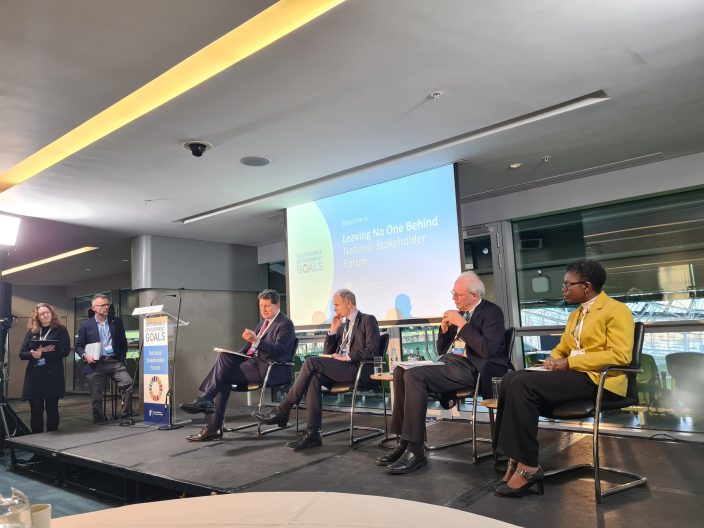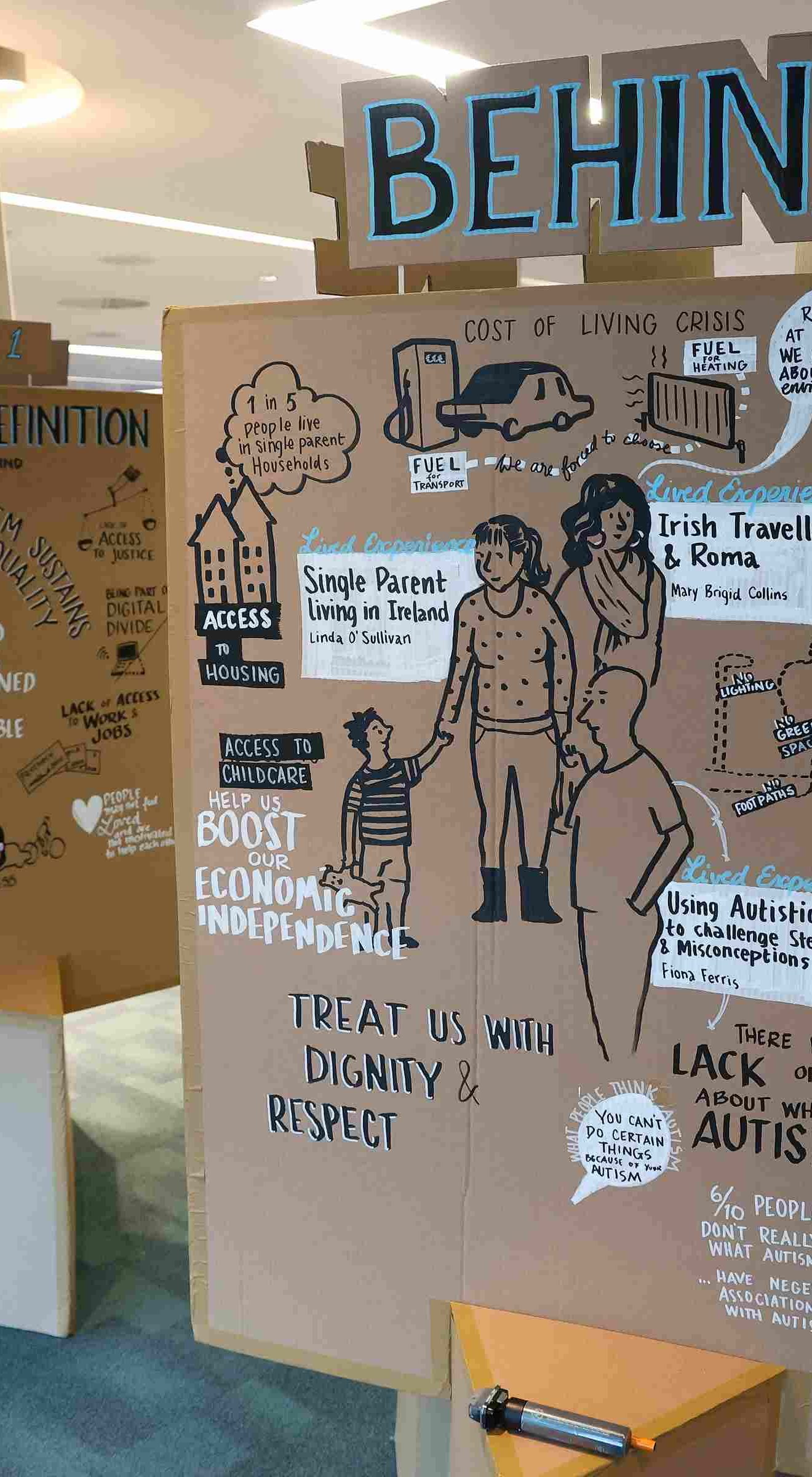The imperative for sustainable enterprise might feel like an existential threat for many organisations. Caught between conflicting demands for efficiency, profitability and sustainability – some fear being left behind. Let’s think about this challenge in the context of the Sustainable Development Goals.
The SDGs and Leaving No One Behind
The 17 Sustainable Development Goals (SDGs) are a collection of globally agreed goals to end poverty, protect the planet and secure peace and prosperity for all. Each SDG has targets that must be reached by 2030. There are 169 individual targets in total.
A key commitment under the 2030 Agenda for implementing the SDGs is that no one should be left behind (LNOB).
“As we embark on this great collective journey, we pledge that no one will be left behind. Recognizing that the dignity of the human person is fundamental, we wish to see the Goals and targets met for all nations and peoples and for all segments of society. And we will endeavour to reach the furthest behind first.” 2030 Agenda, paragraph 4
Implementing the SDGs in Ireland
Each Irish Government Department has a role in implementing the Goals, together with state agencies and Local Authorities, as part of a whole-of-government endeavour.
A national dialogue on what leaving no one behind means in an Irish context is taking place within the National SDG Stakeholder Forum. This writer had the honour of Chairing the Forum meeting in January 2023.

What has Irish Enterprise done well?
Many businesses are now marketing sustainability as part of their brand strategy. In addition, reputational risks associated with greenwashing mean that businesses are increasingly reviewing internal operations and supply chains to secure more sustainable business models. While these endeavours are attractive if they boost the bottom line, businesses are also responding to impending EU Directives on implementing sustainable business practices.
Corporate Reporting Sustainability Directive (CSRD)
The CSRD – published in December 2022 –introduces mandatory standards where large* companies must report annually from 2025, on environmental, social and governance (ESG) matters, covering 82 disclosures and 1,144 data points.
This means that the new European Sustainability Reporting Standards that Irish companies will adhere to in their reports are comprehensive and in-depth. In effect, the EU is leading the way and setting a benchmark for global sustainability standards.
*Large companies exceeding two of:
- 250 employees and/or
- €40M net turnover and/or
- €20M balance sheet total.
This is an urgent matter for many companies in Ireland.
The impact on smaller enterprises
The CSRD will indirectly impact many smaller enterprises as larger organisations who are obligated to report will request sustainability data from across their value chains. In the context of Leave No One Behind, there is a need to avoid complex reporting requirements such that smaller enterprises are excluded from taking contracts and tenders that require sustainability declarations. One standardised benchmarking system is needed that all Irish businesses can use to report on their sustainability performance, enabling deeper engagements with the SDGs.
Without this, businesses face the unenviable task of devising their own reporting system – which may not be fit for purpose – or, worse, given the complexity of the task, may cause them to disengage from the sustainability imperative.
What can Ireland improve on?
There is no shortage of reports on Ireland’s progress in meeting the SDGs and the lists of policy actions in place, or needed, to support this. But what is the actual impact?
If we look at Eurostat’s 2021 report on Sustainable Development in the European Union[1], Ireland is progressing well towards many SDGs and performing better than the EU average. However, there are some Goals that Ireland is progressing worse at than the EU, especially climate action (SDG 13), affordable and clean energy (SDG 7), industry, innovation, and infrastructure (SDG 9), and gender equality (SDG 5). Without referencing an exhaustive list of reports and findings, it is evident that Ireland has made slow progress in achieving the SDGs over the past three years.
An Inconvenient Truth
Technological innovation alone will not achieve the required reductions in carbon emissions and biodiversity depletion. No matter how many efficiency measures we roll out, technical efficiency won’t be enough unless without a fundamental shift in business models and traditional thinking about business performance. A more sustainable future requires every facet of Irish society to rethink its core values and to adapt behaviour. We need more than carefully engineered policy documents, clever marketing campaigns and well-meaning requests for socially desirable pro-environmental action. It is the most compelling and exciting challenge of our time.
“If you truly want to understand the world, try to change it”
Kurt Lewin, Psychologist
[1] Eurostat (2021), Sustainable Development in the European Union: Monitoring report on progress towards the SDGs in an EU context

Share this on...